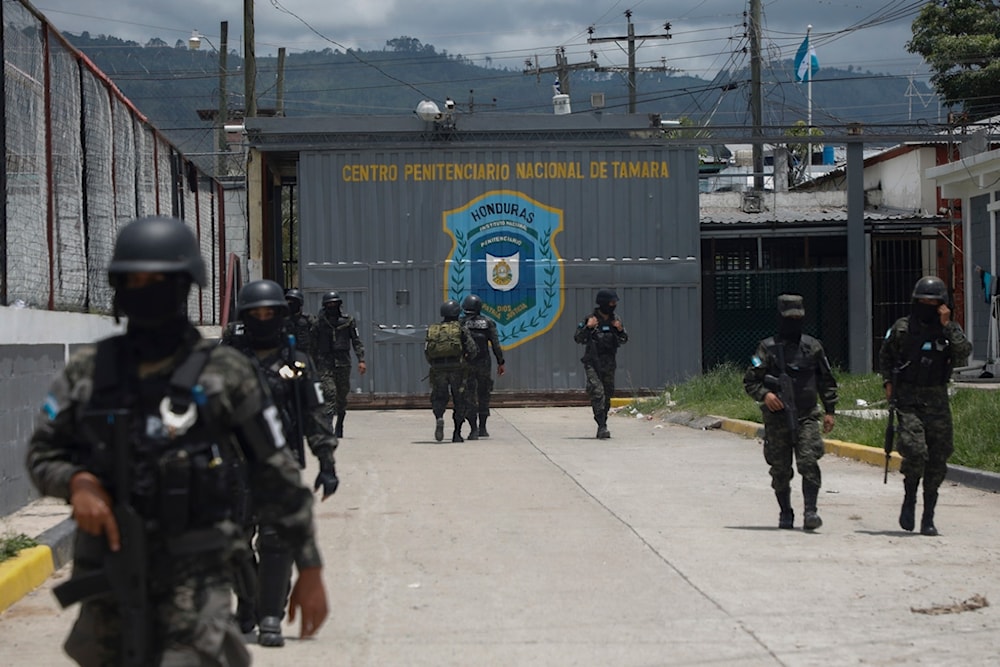Honduran journalist shot and killed in Danli
On Thursday night, a Honduran journalist was shot and killed in Danli, a town in the east of the Honduran capital Tegucigalpa, although he was granted protection by police forces following a previous attack in May.
-

Military police guard the entrance to the National Penitentiary Center in Tamara, on the outskirts of Tegucigalpa, Honduras, Tuesday, June 26, 2023. (AP)
On Thursday night, a Honduran journalist was shot and killed in Danli, a town in the east of the Honduran capital Tegucigalpa, although he was granted protection by police forces post a previous attack in May.
The deceased, Francisco Ramirez was 39, and an employee of both Canal 24 TV and the public prosecutor's office in Danli.
Allegedly, and according to police commissioner Lisandro Garcia, Ramirez was kidnapped by travelers in different vehicles and fell victim to multiple gunshots. Moreover, the police officer tasked with protecting Ramirez was wounded in the operation.
Initially, police commissioner Garcia theorized that the murder was a result of a personal vendetta against Ramirez, but the director of the Committee for Freedom of Expression in Honduras, Amada Ponce, revealed to AFP that it was inmates from prison who plotted his murder.
"This is a murder linked to his work as a journalist," she said. "He had already suffered an attack on May 3 for his coverage and investigation of criminal activities that had led people to prison," she said.
Following the assassination, the UNHCR denounced the events that led to it, stipulated for an investigation, and called on the Honduran authorities to provide increased protection to "those who exercise freedom of expression".
Throughout the year, one other journalist was murdered. Honduras has been deemed as "one of the most unsafe places for journalists" to exercise their careers. Over the past 22 years, around 100 journalists have been killed for their views in Honduras.
Honduras extends state of emergency to fight gangs
Honduras is notorious for having criminal gangs that execute these murders. The government has significantly tried to combat the threats posed by these gangs, notably in April through May. In April of this year, Honduras extended the country's state of emergency, continuing the suspension of some constitutional rights.
This marked the third extension of the state of emergency ordered by President Xiomara Castro in response to the activity of numerous significant criminal groups is expected to endure 45 days until May 21.
Because of the state of emergency, officials and police were authorized to conduct arrests without warrants and detain people in preventative custody.
"This legal measure has made it possible for security authorities to capture more than a hundred members of criminal organizations," the government said in a statement.
Furthermore, the state of emergency allows authorities to temporarily restrict constitutional rights in impacted regions, while lower-income communities have seen enhanced security.
Authorities claim that the gangs have conducted significant extortion operations against companies, transportation drivers, and nongovernmental organizations (NGOs), deploying violence against enterprises that do not pay protection money.
Read more: Under 'democracy' cover, US set to tighten grip on Central America

 3 Min Read
3 Min Read








